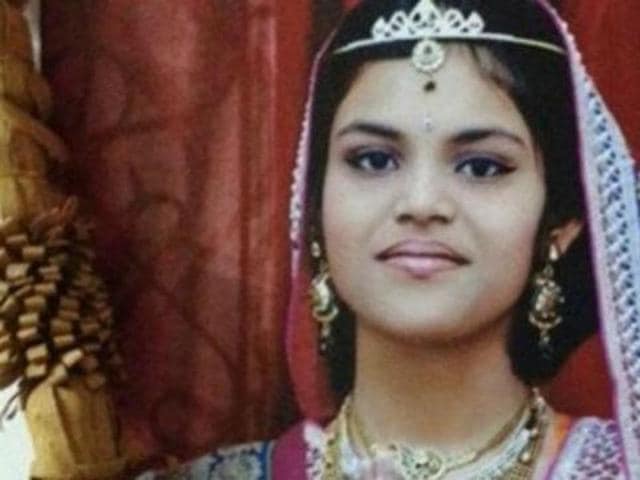Parents of girl who died after fast are not criminals: Jain scholars
Why are so many religious sacraments in Jainism, one of the world's most ancient religions, facing legal hindrances?
A 13-year-old Jain girl from Hyderabad died on October 4 after fasting for 68 days. Her parents said she volunteered to undergo the fast, a penitence ritual that is celebrated and honoured by the community, to get divine blessings for her father’s jewellery business. The police have registered a case against her parents, charging them with culpable homicide not amounting to murder.

In May 2009, the Mumbai police took away a nine-year-old boy Jain who was to be ordained as a monk. The child had been brought from Gujarat for a ‘Bal Diksha’ ceremony by a Chinchpokli-based trust. His parents had said the child wanted to become a monk. As the community prepared for a grand ceremony to ordain the child monk, the police, who were tipped off by child rights groups, placed the boy in a rescue home and the case was heard by the Child Welfare Committee, a judicial body. When the case was argued in the courts, Jains said their scriptures allowed the ordination of children above eight.
Read: ‘Don’t interfere’: Jain leaders tell activists as girl dies fasting for 68 days
Another custom that has had problems with the law is Santhara - also known as sallekhana – a practice in which a person gives up food and water with the intention of preparing for death. Old people have chosen to die this way though there are allegations that some were coerced to do it. When a high court termed the practice as suicide, community trusts went to the country’s apex court to challenge the order.
Read: Jain girl death row: Religion can’t be a licence to deny right to life
The police action in Hyderabad and Mumbai was opposed by Jain religious leaders who said this was interference in their religious affairs. Is it? As this newspaper reported, the right to freedom of religion mentioned in the country’s Constitution is subject to conditions of public order, morality and health and is subordinate to all other fundamental rights. What this means is that the right to freedom of religion is not absolute; it is a severely restricted right and certainly doesn’t include the right to take one’s life, particularly that of a child.
There is also a feeling that Jain religious practices are targeted because they are a minuscule group. “The religious practices of peaceful groups are under scrutiny,” said Lalit Nahta who edits a periodical on community affairs. “Jains will like to follow all their religious tenets but others are making this an issue. There is nothing wrong in fasting and we have been doing it for hundreds of years. There has been just one incident (the death of the Hyderabad child).”
Why are so many religious sacraments in Jainism, one of the world's most ancient religions, facing legal hindrances? Jain scholars said practices such as Bal Diksha are not universal to all Jain sects. “There are groups which say children should be educated to a certain age and Diksha is a choice that can be made later in life. As far as fasting is concerned it should be done as per the capacity of the body,” said Bipin Doshi, a teacher of Jain philosophy at University of Mumbai. “The child (who died) had done this kind of extreme fasting in the past. The parents would not have known that the child will die. This is a matter of faith and it is difficult to reconcile faith with logic,” said Doshi.
Doshi said that criminal action against the parents is wrong. “As a teacher of Jain philosophy I will like to tell people that this kind of fasting can be hazardous for a young child like this, but you cannot go for legal action; the parents did not want to kill the child,” said Doshi who thinks that the criminal case against the parents will not stand in court.
Doshi said scholars and leaders should ask parents to not allow their children to volunteer for such extreme kinds of fasting. “The advice will work if it comes from the community.”
Stay updated with all the Breaking News and Latest News from Mumbai. Click here for comprehensive coverage of top Cities including Bengaluru, Delhi, Hyderabad, and more across India along with Stay informed on the latest happenings in World News.
Stay updated with all the Breaking News and Latest News from Mumbai. Click here for comprehensive coverage of top Cities including Bengaluru, Delhi, Hyderabad, and more across India along with Stay informed on the latest happenings in World News.





